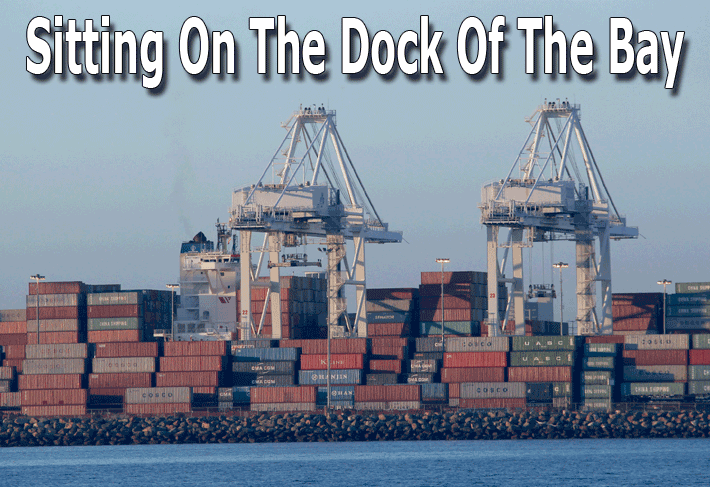
Hard
on the heels of a shutdown last weekend comes word from The Pacific
Maritime Association (PMA) that vessel operations at U.S. west coast
ports are once again suffering a total shutdown, which began today and
will continue until next Tuesday during the Presidents' Week holiday.
While the U.S. west coast dock
slowdown handcuffs 29 port terminals, leveraging a huge dent into a
$2.1 trillion dollar annual throughput (or 12.5 percent of the entire
U.S. GDP) it may be the little things that go missing that mean a lot.
As Lunar New Year begins in
China next week, tons of Southern California-grown lettuce, celery,
and broccoli—which should have been on its way by mid-January—will
not arrive on time to grace the tables of festive families.
USA Today reports that
the produce represents almost a quarter of annual business for some
suppliers and growers.
According to one report, produce
is stacking up from Los Angeles all the way up to Seattle as shipping
times have tripled.
For shipments that absolutely
must go, there have been some layoff of shipments to air cargo, but
that means moving produce at shippers’ costs, thinning or erasing
profit margins altogether.
In terms of the job, the average
pay of an ILWU longshoreman that walked off the job last weekend and
only came back this past Monday is $142,.000.
Multiply that number by the
42,000 ILWU workers in California, Oregon, and Washington State.
But more than 9.2 million U.S.
jobs depend on those ports, and as exports go nowhere fast, the fear
is unresolved issues causing the slowdown could escalate to a full-blown
strike.
The last time that happened was 2012, and it drove President George
W. Bush to invoke a back-to-work law.
Observers, while hoping that
a strike is not the case in 2015, say if labor walks, the White House
will again step in.
Geoffrey/Flossie
|
 |
 |





